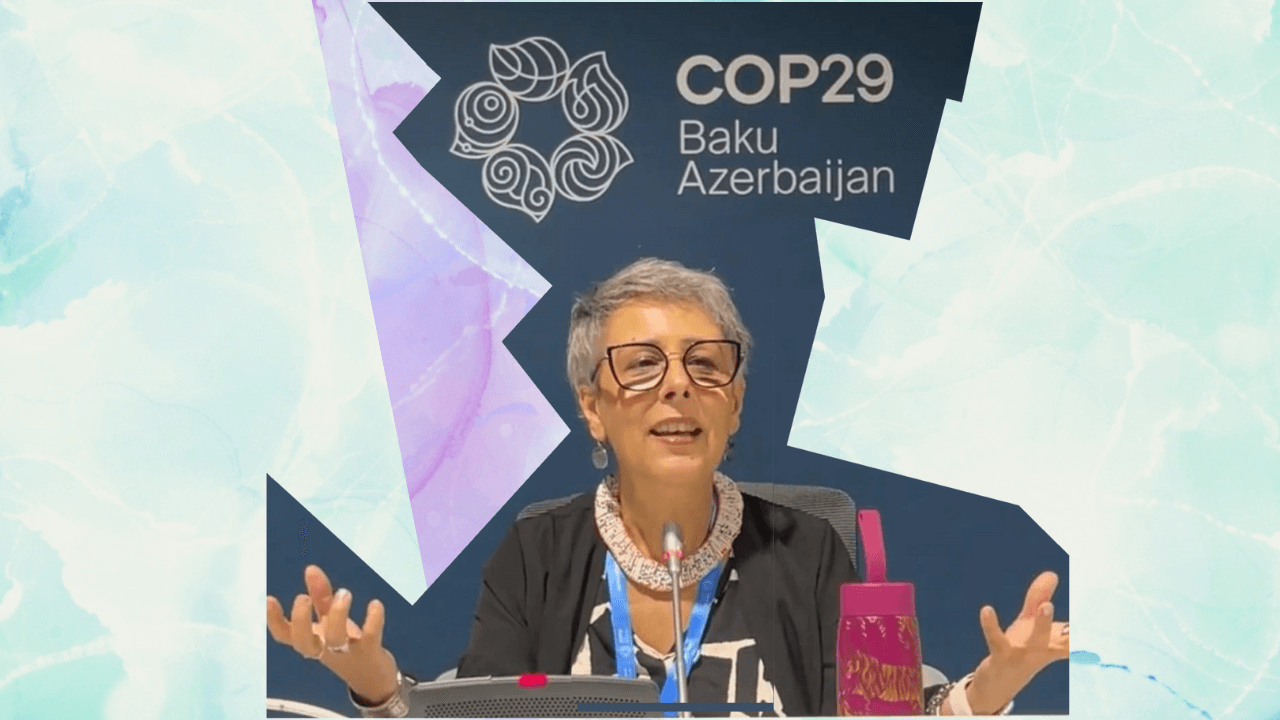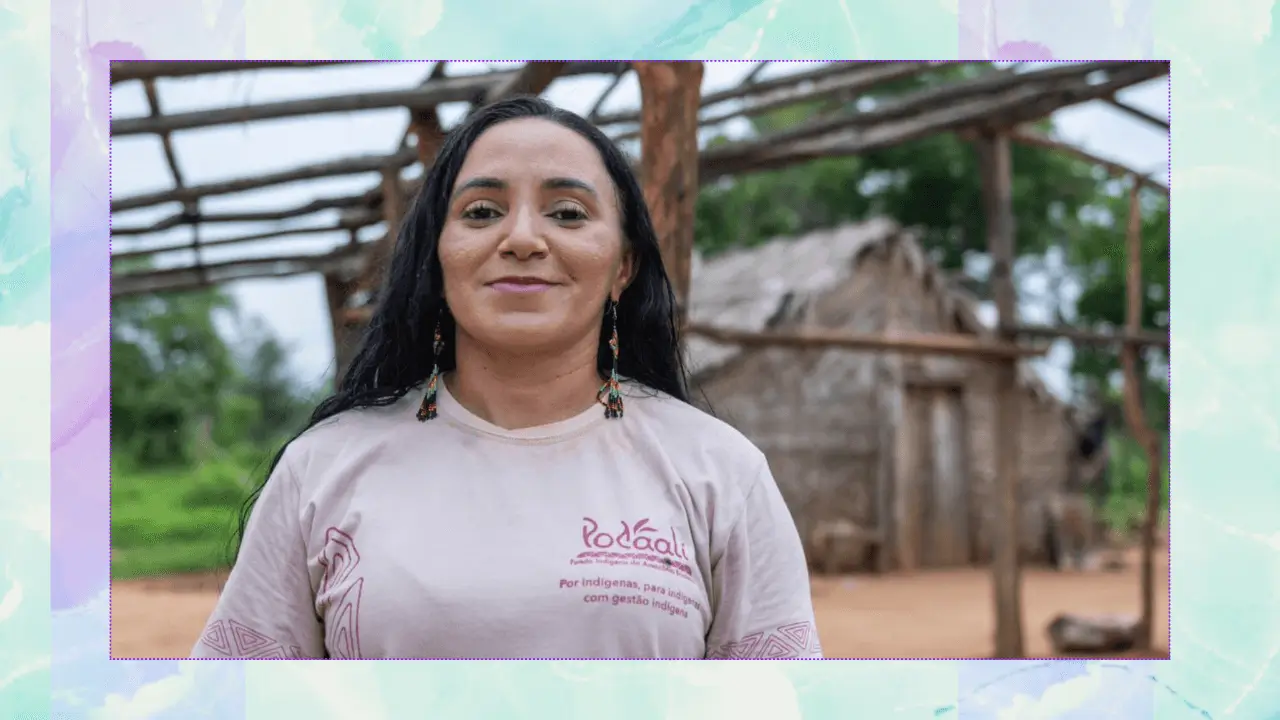Grassroots International has funded agroecology for more than two decades. Under their work on food sovereignty and ecological justice, they’ve supported networks of agroecological farmers, a constellation of agroecology schools around the world, and the ongoing Nyéléni Process for food sovereignty.
As agroecology gains more traction in mainstream philanthropy, we spoke with Saulo Araujo and Christina Schiavoni from the Grassroots International team. Araujo, who works as Director of Global Philanthropy, got his start working as an agronomist with peasants and indigenous people in Northeast Brazil. Schiavoni, who works as Senior Communications Coordinator, is a longtime food sovereignty activist and scholar.
We spoke about their approach to funding this work, and their take on how funders can best use philanthropic dollars to advance the global agroecology movement. The big takeaway: movement-building is at the core of this work. And for guidance, funders can look to social movements like those driving the Nyéléni Process – which some funders will have a chance to visit this fall.
This conversation has been edited and adapted for clarity.
How did Grassroots International come to start funding agroecology, and what do you support specifically?
It was not our intention to fund agroecology; it was a response to the needs of the social movements we support.
Our shared goal is to move an important agenda, which is global food sovereignty: a grassroots response to the industrial agriculture systems [that displace peasants and indigenous people from their ancestral lands]. And agroecology is an instrument to move toward food sovereignty.
It’s important to understand that agroecology is not just about producing organic carrots, or helping families produce food in small spaces. It’s about creating enough power for people to contain the encroachment of industrial agriculture. It’s a fight for survival.
To that end, over the past few decades, Grassroots International has moved resources to support efforts like peasant-led agroecology networks and agroecology schools. We form long-term partnerships that include core, flexible, multi-year funding.
One example is IALA Mexico, a school associated with La Via Campesina that combines technical agroecology training with political training across ten Mexican states. Another is Nous Sommes la Solution/We are the Solution, a women-led network of rural movements promoting agroecology across West Africa, that arose in response to the Gates-funded Alliance for a Green Revolution in Africa.
A key focus of our support is to bolster the necessary movement infrastructure to scale agroecology both outward and upward. Food providers all over the world are either practicing agroecology or have the knowledge needed to practice it. But they are up against forces that serve as a barrier. This is why organizing and movement building are no less key to agroecology than producing food.
On the topic of movement infrastructure – part of your work with movements is supporting the Nyéléni Process. Can you talk about the donor delegation that you’re bringing to the upcoming global forum this fall in Sri Lanka?
In 2007, a group of peasant movements, indigenous people, smallholder farmers and allies came together in Mali to concretize a set of principles for food sovereignty, and a strategy – how are we going to advance food sovereignty in the next 25 years. They created an internationalist alliance and a process that has been ongoing since then, which we have been honored to accompany from the beginning. The third Nyéléni Global Forum is happening this fall, in Sri Lanka.
This is not a funder-led event; it is entirely social movement-led. But this year, for the first time, the social movements made the decision to invite a delegation of funders and donors. Grassroots International has been spearheading the Nyeleni Funders Circle, a group of people in philanthropy who are committed to supporting and accompanying social movements in the long run. This group and other funders will attend the Forum.
This is a valuable opportunity for people in philanthropy to learn and understand the views of people in social movements. For instance, they are building a new 25-year strategy, not a 5-year plan. This will be a unique opportunity for funders to be in community and learn how to contribute to it.
One concern that has come up in food sovereignty spaces is the danger of cooptation – funders external actors coming in and steering the agenda. How big a concern is that in the agroecology space?
In my sense, nothing can be co-opted if it’s a movement, built collectively through an internationalist approach.
Both food sovereignty and agroecology are owned by social movements, and the Nyéléni Process solidified that. Of course, you can attempt to control things via communications and the media. But social movements always keep growing that knowledge, keep expanding it. So one entity cannot co-opt something that is owned by millions.
At Grassroots International, we take an approach we call Solidarity Philanthropy. We have a framework based on 40 years of experience working with social movements. This framework asks: how can we transform philanthropy into a movement support sector? How can we create the conditions for movements themselves to fight against cooptation?
I do think we have seen attempts to just fund agroecology the practice, without funding agroecology the movements. Or an attempt to fund just the technical aspects of agroecology without the political, which go hand-in-hand.
So we try to make sure that social movements are the protagonists in the process. Other allies, like funders, academics, NGOs, scientists, etc. have a key role to play – but it’s movements that need to be defining the process.
What’s coming up next for you?
This is such an important moment for this work. Despite the multiple crises upon us right now, social movements are both carrying forward life-sustaining work on the ground and leading forward these very intricate global processes that are not just theoretical but really designed to yield tangible outcomes.
The impacts of the first and second Nyeleni forums in advancing food sovereignty and agroecology in both policy and practice cannot be understated. Expectations are just as high, if not more so, for this upcoming forum. And there is incredible intentionality behind the planning.
And it’s not just about single events. These are processes. Right after Nyeleni we’re going into the People’s Summit Toward COP30 happening in parallel to this fall’s summit, followed by a series of mobilizations including organizing toward the launch of the International Feminist Organizing School in Kenya next year.
This is such an critical moment for funders to step up and match the efforts of social movements right now, and to do it in a way that honors and upholds these movements as protagonists.

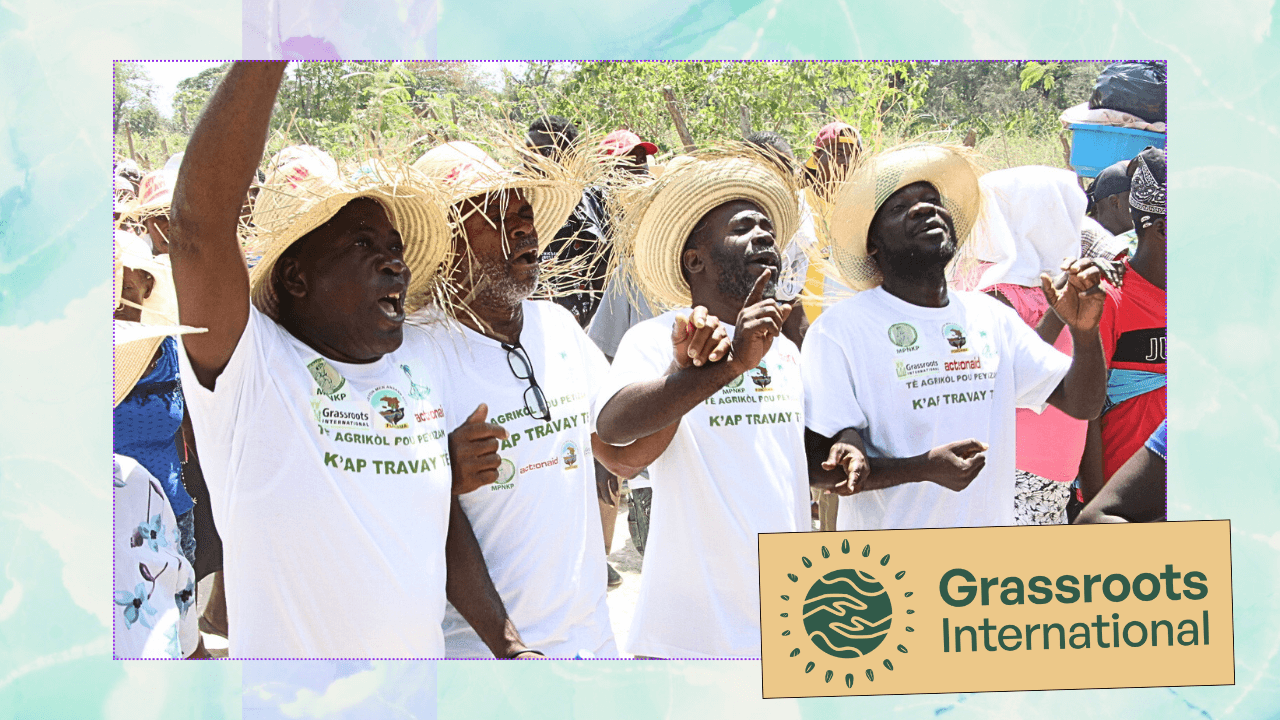

%20(1280%20x%20720%20px)%20(44)%20(1).png)
%20(1280%20x%20720%20px)%20(34).webp)
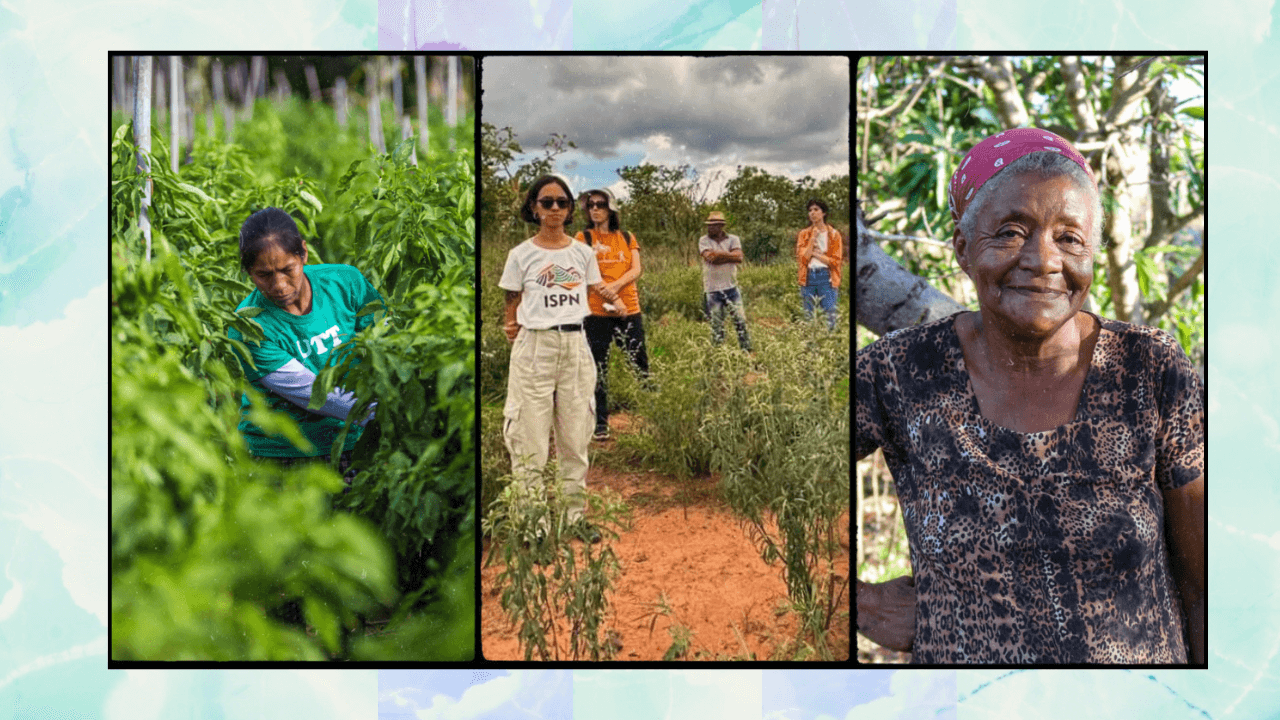
.webp)
%20(1280%20x%20720%20px)%20(37).png)
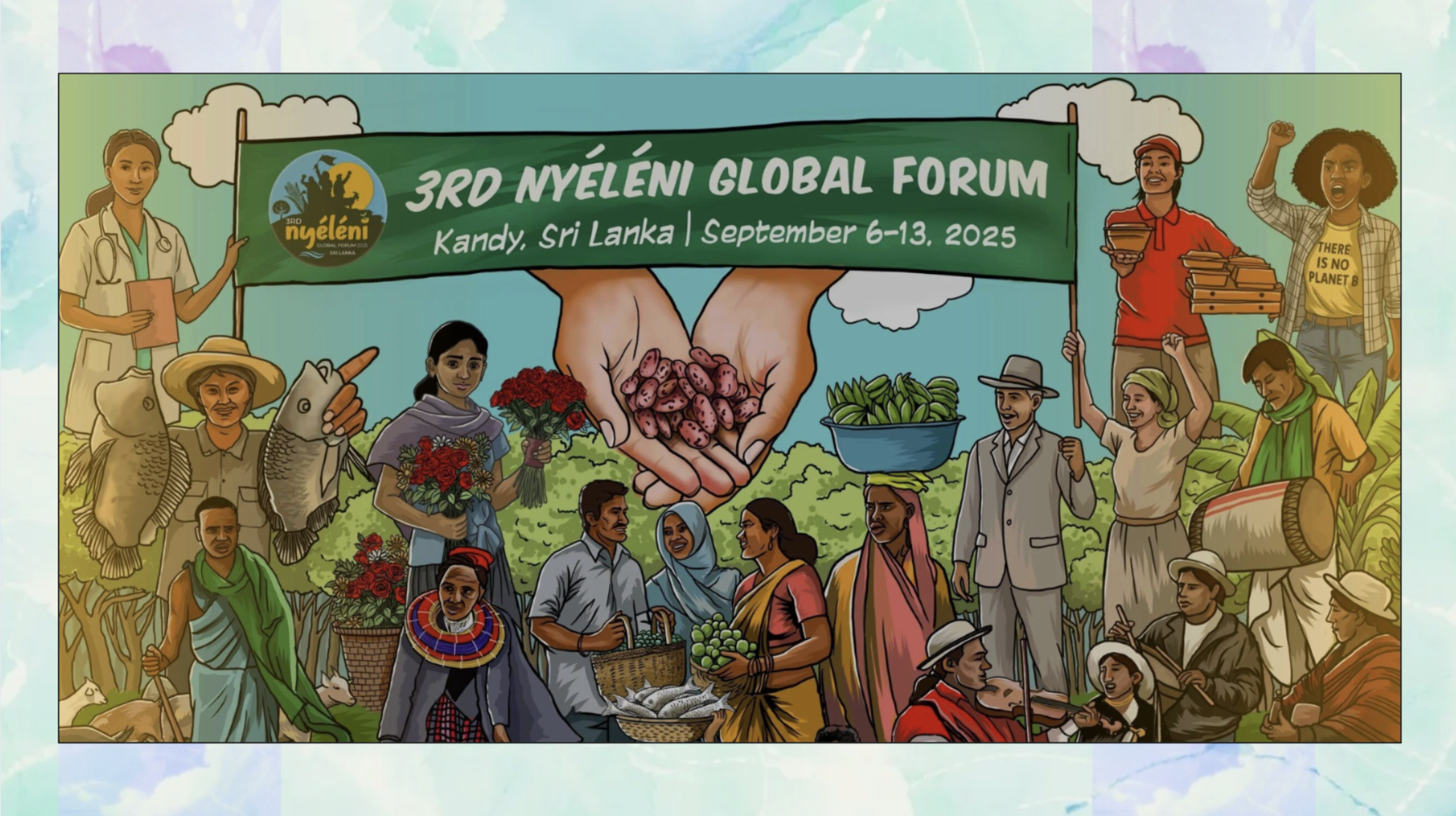



.webp)
